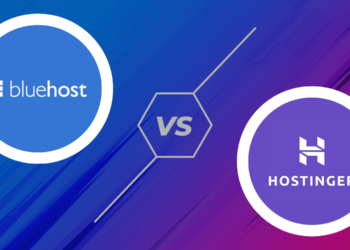In this article, you’ll gain a thorough understanding of backlinks, including their definition, operation, significance, and strategies for obtaining them to enhance off-site search engine optimization (SEO).
The aim is to provide a comprehensive overview of backlinks and their impact on websites and digital marketing in the realm of SEO.
- What Are Backlinks?
- What is the difference between a link and a backlink?
- Role of Backlinks in SEO
- Importance of Backlinks
- What Types of Backlinks are Valuable?
- How Backlinks Work for SEO
- How Many Backlinks Do I Need To Rank? How to get backlinks
- Backlink Types
- Best Practices for Backlinks
- Tools for Backlink Analysis
- Backlinks In SEO Summary
What Are Backlinks?
Backlinks are links on a website that direct users to a page on another website. These links assist search engines in discovering and cataloging content on the internet by crawling links that lead to other sites. Backlinks are also known as “inbound links” or “incoming links” as they come from external websites. These terms can be used interchangeably in the fields of SEO and digital marketing.
What is the difference between a link and a backlink?
A link is simply a clickable element that redirects a user to another web page. It can be a hyperlink on a website, an image, or even text.
On the other hand, a backlink, also known as an “inbound link” or “incoming link,” is a link from one website to another website. Backlinks are significant in the context of search engine optimization (SEO) as they act as a vote of confidence from one website to another and can impact the ranking of a website in search engine results.

In short, a link is a clickable connection that takes you from one page to another, while a backlink is a specific type of link that originates from one website and points to another website.
Role of Backlinks in SEO
Backlinks play a crucial role in boosting the authority and credibility of a target domain and its web pages in the eyes of search engines. Google’s PageRank algorithm considers both the quantity and quality of backlinks when determining the ranking of content in search engine results pages (SERPs) for specific keywords.
Another benefit of backlinks is to generate referral traffic to a website from other sites, thereby increasing the visibility of its content. Backlinks that bring high-quality traffic to a web page can enhance the user experience signals that are a key part of the ranking algorithms used by search engines.
Importance of Backlinks
Backlinks are critical for SEO because they act as an endorsement from one website to another, and serve as an off-site ranking signal in the SERPs. Here are some of the key advantages of backlinks:
- Enhancing off-page SEO factors
- Improving Page and Domain Authority metrics
- Raising keyword rankings in the SERPs
- Enhancing overall search engine visibility for the website
- Driving referral traffic
- Boosting website credibility
- Providing ongoing website promotion
- Increasing business revenue
What Types of Backlinks are Valuable?
Not all backlinks are created equal, and the value of a backlink depends on several factors. Here are some of the types of backlinks that are considered valuable in the context of search engine optimization (SEO):
- High-quality content: Backlinks from websites that feature well-researched, engaging, and relevant content are highly valued by search engines.
- Relevant websites: Backlinks from websites that are in the same niche or industry as your website are more valuable than links from irrelevant websites.
- Authority websites: Backlinks from websites with high domain authority, such as government websites, universities, and well-established news websites, carry more weight than links from low-authority websites.
- Diverse backlink profile: A diverse mix of backlinks from different types of websites and sources is more valuable than a large number of links from a single source.
- Natural backlinks: Backlinks that are obtained naturally, through high-quality content and marketing efforts, are more valuable than links obtained through unethical practices, such as link buying or link farming.
In general, backlinks from high-quality, relevant, and authoritative websites are considered to be the most valuable, while backlinks from low-quality or spammy websites can harm your website’s ranking.
Read also:
- How to Increase Website Traffic | Ultimate Guide 2023
- What is Ecommerce | 2023 Update for Beginners
- SEMrush Review 2023: All the Pros and Cons
- Ahrefs Reviews & Ratings (2023) | Pros & Cons
- Effective keyword research
How Backlinks Work for SEO

The process for backlinks consists of website owners adding hyperlinks to other sites using anchor text, which is the visible, clickable text for the backlink that describes where the link points to.
The anchor text of backlinks is used to determine the relevance of a web page for specific keywords. By looking at the anchor text, search engine algorithms can determine what a web page is about (i.e., the topic) and how relevant the content is for specific queries (i.e., keywords).
Backlinks are an essential part of the SEO process because they’re one of the most important off-site signals for search engine algorithms to use to index and rank content in the SERPs. Every URL on the Internet has a PageRank score, and each time that URL links to another page on the web, it transfers a portion of that PageRank value for SEO.
Therefore, the more quality backlinks you have pointing to your domain and its associated web pages, the higher trust, credibility, and authority your website has, which leads to higher rankings and organic search traffic.
How Many Backlinks Do I Need To Rank? How to get backlinks
The number of backlinks required to rank a website depends on various factors such as competition for the keywords you are targeting, the relevance and quality of the backlinks, the authority and credibility of the linking domain, etc. There is no exact number of backlinks needed to rank a website, but generally, more high-quality backlinks from authoritative domains will lead to improved rankings.
To get backlinks, there are various strategies that you can use, including:
- Creating high-quality, valuable, and shareable content that other websites would naturally want to link to.
- Reaching out to other websites in your niche or industry to ask for links.
- Guest posting on other websites, which includes writing an article or blog post and including a link back to your site in the author bio or resource section.
- Building relationships with influencers or other industry leaders, who may be willing to link to your website.
- Participating in online forums, discussion boards, and other communities, and including a link back to your site in your signature or profile.
- Utilizing broken link building, where you find broken links on other websites and offer to replace them with a link to a relevant page on your website.
It’s important to note that link building should be done in a natural and sustainable manner. Avoid engaging in black-hat or unethical link building practices such as buying links, participating in link schemes, or using automated link building tools, as these can result in penalties from search engines.
Backlink Types

There are 25 different types of backlinks that a website can receive from other sites, including:
- Dofollow Backlinks: These backlinks pass PageRank or link equity for SEO purposes.
- Nofollow Backlinks: These backlinks may or may not pass PageRank, as it’s a suggestion rather than a directive.
- Contextual Backlinks: These backlinks are placed inside the body content of a page.
- Header Backlinks: These backlinks are attached to headings such as H1, H2, and H3.
- Branded Backlinks: These backlinks include the brand name in the anchor text.
- Naked URL Backlinks: These backlinks use the URL as the anchor text.
- Natural Backlinks: These are links without SEO-optimized text, such as “click here”.
- Editorial Backlinks: These backlinks are received naturally without payment, request, or exchange, by publishing high-quality content.
- Paid Backlinks: Any type of backlink that money is exchanged for.
- Sponsored Backlinks: These backlinks include the rel=”sponsored” HTML attribute to indicate they are paid.
- Author Backlinks: These backlinks are placed in the author bio box within an article.
- Homepage Backlinks: These backlinks come from the homepage of another website.
- Navigation Backlinks: A type of sitewide link displayed in the navigation menu of another site.
- Sidebar Backlinks: A sitewide link placed in the sidebar section of a site.
- Footer Backlinks: A sitewide link placed in the footer section of a site.
- Image Backlinks: These backlinks come from graphics and photos on a web page, hyperlinked with an outbound URL.
- JavaScript Backlinks: These backlinks are embedded in JavaScript code and point to another website.
- Social Media Backlinks: These backlinks come from social media platforms like Facebook, Twitter, Instagram, Reddit, TikTok, etc.
- Blog Comment Backlinks: These backlinks are created by leaving comments on blog posts.
- Forum Backlinks: These backlinks are created in forum posts.
- Profile Backlinks: These backlinks are created on the profile page of a third-party site that allows users to create their own profiles.
- Social Bookmarking Backlinks: These backlinks are created on social bookmarking sites by tagging a URL.
- Citation Backlinks: These backlinks are built on local directories and business association sites, requiring a legal business name, address, and phone number to establish the company online.
- Press Release Backlinks: These backlinks come from official statements published by a company and distributed on news and media publication sites.
- 301 Redirect Backlinks: These backlinks use the 301 HTTP response code to indicate a permanent redirect from one URL to another.
Best Practices for Backlinks

To maximize the value of backlinks for SEO, follow these best practices:
- Create linkable assets: Offer extra content on your page such as ebooks, white papers, infographics, charts, statistics, and videos that other website owners will want to link to instead of creating the content themselves.
- Participate in interviews: Take part in interviews to get backlinks from blog posts, podcasts, and YouTube channels while expanding your audience.
- Write testimonials: Write testimonials for products and services you like to get high-quality backlinks from the company’s homepage or product/service page.
- Use Skyscraper content: Write a comprehensive and useful article that surpasses the top-ranking content for a target keyword. Reach out to the websites linking to the top URLs and ask if they would consider linking to your article.
- Use the broken link building method: Find broken links on other websites, notify the owners, and suggest your website as a replacement link.
- Sign up for HARO: Get high-quality backlinks from well-respected publications by becoming an expert resource for journalists through Help a Reporter Out (HARO).
- Build business association links: Create free backlinks on business profile sites such as Crunchbase, Google Business, and Bing Places.
- Use social media: Post daily links to your website from social media platforms like Twitter, LinkedIn, Reddit, and Facebook.
- Use outbound links: Cite articles from influencers in your niche with outbound links and notify them in the hope that they will link back to your site.
- Write a guest blog post: Despite Google’s disapproval, guest posting is still a common way to create backlinks for SEO.
- Conduct a link gap analysis: Use a link checking tool to create a backlink report for your website and competitors’ sites to identify missing link prospects.
- Create a free tool: Develop a link-worthy tool that people in your industry can use for free on your website to bring in quality inbound links and referral traffic.
- Build branded website properties: Set up a branded business profile on sites like Medium, Quora, and LinkedIn and post daily content that links back to your website.
- Fix broken backlinks: Find and fix broken links pointing to your site to prevent leaking valuable PageRank.
- Don’t forget internal links: Internal links are important for building backlinks for SEO. Use link sculpting to control the flow of your website’s internal PageRank.
Tools for Backlink Analysis
Analysing the backlinks of your website and competitors is crucial for refining your SEO strategy. By evaluating factors such as anchor text ratios, Domain Authority, Page Authority, and the proportion of dofollow and nofollow links, you can assess how your website’s metrics compare.
Backlink analysis tools provide valuable insights into effective off-page SEO strategies used by your competitors, allowing you to apply similar techniques to improve your website’s search engine rankings. Here are some of the best options for backlink analysis:
- SE Ranking
- Ahrefs
- Mangools LinkMiner
- SEO SpyGlass
- Google Search Console
- Moz Link Explorer
- Semrush Backlink Analytics
- Ubersuggest Backlink Analyzer
- Majestic
- Monitor Backlinks
Backlinks In SEO Summary
Backlinks are links from other websites that point to your website and play a crucial role in determining the ranking of your website on search engines. Having a strong backlink profile can improve your search engine optimization (SEO) and increase your website’s visibility to potential visitors. To create valuable backlinks, you can create linkable assets, participate in interviews, write testimonials, create skyscraper content, use the broken link building method, get high-quality backlinks from Help a Reporter Out (HARO), build business association links, create backlinks with social media, use outbound links, write guest blog posts, conduct a link gap analysis, create a free tool, build branded website properties, fix broken backlinks, and use internal links. Checking backlinks is an important aspect of SEO and can be done using tools like SE Ranking, Ahrefs, Moz Link Explorer, and Semrush Backlink Analytics.
















